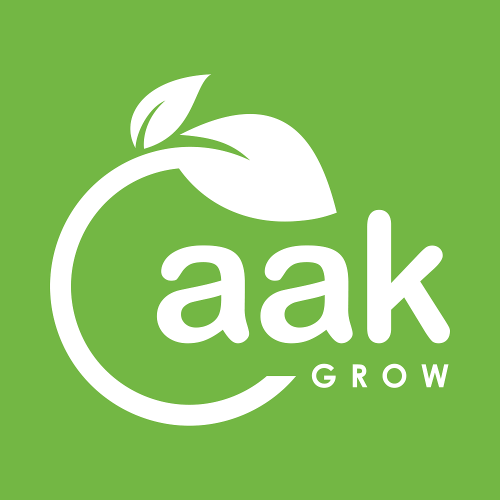Regulations
Kenya has created the strongest possible protection of human health and the environment from pest control products by taking approval by a leading global pesticides regulator, such as the US, as a prerequisite for registration in Kenya: no pesticide may be used in Kenya if it has not been approved by one of the world’s advanced pesticide regulators.
This baseline is then augmented by comprehensive regulations governing pesticide labelling and instructions, storage, disposal and all other aspects of pesticide registration and management, as defined by the United Nation’s Food and Agricultural Organisation (FAO) Code of Conduct on Pesticide Management. Kenya also carries out ongoing testing for pesticide residue levels to ensure they are maintained at healthy levels, as defined by the World Health Organisation.
In ensuring safety, the Kenyan regulations on pesticide registration rule that:
- Registration in Kenya is anchored in law (PCPB Act) which has six regulations governing the industry.
- Kenya does not manufacture any pesticides, but repackages pesticides that are imported, principally from China, Europe, the US, Canada, Australia and South Africa.
- No pesticide can be registered in Kenya unless it has been registered in its country of origin for the same use.
- No pesticide can be registered in Kenya without proof that it has already been approved for use in a developed country with a reputable risk assessment regimes, such as the EU or US, Canada, or Australia.
- Kenya can never be the first country to register a pest control product that has not been proven safe in other countries.
- Kenya requires, further, that all pesticide testing is conducted according to international guidelines, with certification to prove they used a Good Laboratory Practices (GLP) accredited laboratory. These labs are not found in Kenya.
Kenya is also a signatory to key international conventions, which are fully in effect, being:
- Stockholm Convention governing Persistent Organic Pollutants, which requires that countries regulate to eliminate or restrict the production and use of listed Persistent Organic Pollutants (POPs).
- Rotterdam Convention governing information sharing on international trade of hazardous chemicals. This protects signatories from unwanted hazardous imports entering their countries, imposing labelling requirements and requirements to inform regimes of such trade.
- Montreal Protocol on Substances that Deplete Ozone Layer includes ozone depleting substances that are duly banned or restricted in Kenya.
- Basel Convention controls the cross-boundary movement of hazardous wastes and their disposals.
Under these conventions, Kenya’s Pest Control Product Board (PCPB) is a Designated National Authority (DNA) on pesticides and participates in meetings for banning or restricting products.
Banned or restricted pesticides under these conventions are automatically banned in Kenya. The PCPB has a list of banned pesticides on its website.
Kenyan laws
The 1985 Pest Control Product (PCP) Act, revised in 2012, created:
1. A Pest Control Products Board (PCPB) whose functions include:
Assessing pest control products in line with the Act and regulations;
- Recommending the registration of pest control products and advising the Minister of Agriculture on the enforcement of the Act and regulations.
2. A set of six regulations:
Pest control products (licensing of premises) regulations
Pest control products (registration) regulations
Pest control products (labelling, advertising and packaging) regulations
Pest control products (importation and exportation) regulations
Pest control products (disposal) regulations
Pest control products (licence fees and other charges) regulations
The Pest Control Product (PCP) Bill 2017-2020 aims to create:
- An independent Pest Control Products Authority to regulate the sector
- A PCPA board of director to formulate policies and oversee regulation
- A tribunal to hear appeals on registration and pest control product regulation.
- A set of seven regulations:
Pest control products (registration) regulations, 2019
Pest control products (licensing of premises and business) regulations, 2019
Pest control products (labelling, advertising and packaging) regulations, 2019
- Pest control products (importation and exportation) regulations, 2019
Pest control products (licence fees and other charges) regulations, 2019
Pest control products (disposal) regulations, 2019
Confidential business information regulations, 2019
These add extra requirements for proof of compliance with laws elsewhere, and in local efficacy data. They also raise the bar on the scientific qualifications needed to run a pest control product business or store and make stock records mandatory.
In addition, the new regulations move Kenya to the global system of hazard labelling on chemicals, the Globally Harmonized System of Classification and Labelling of Chemicals and adds clauses suspending import permits where a pest control product is shown to be harming human health. The new confidential business information (CBI) regulation requires that the regulator respects the confidentiality of business-sensitive information, and pesticide container disposal is enhanced by introducing Empty Pesticide Collection Centres.
https://aakgrow.com/wp-content/uploads/2021/05/THE-PEST-CONTROL-PRODUCTS-BILL-2017-Feb-2020.pdf
In 2020, Extended Producer Responsibility Regulations were issued under the Environmental Management and Coordination Act 1999 that have made it obligatory for the industry to offer schemes to collect used containers. For information about the industry’s container and obsolete stocks management see: Waste Management .
Extended Producer Responsibility Regulations WEBINAR 2020 AUGUST
CropLife Kenya Extended Producer Responsibility Frequently Asked Questions

